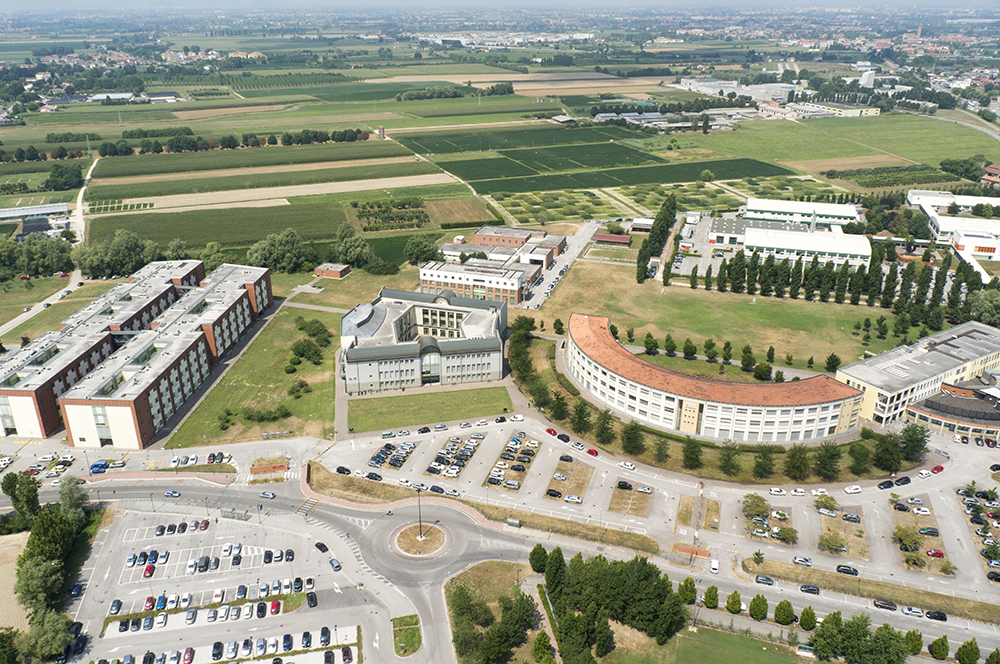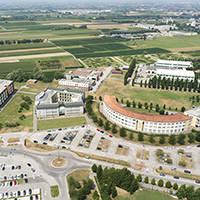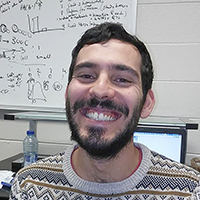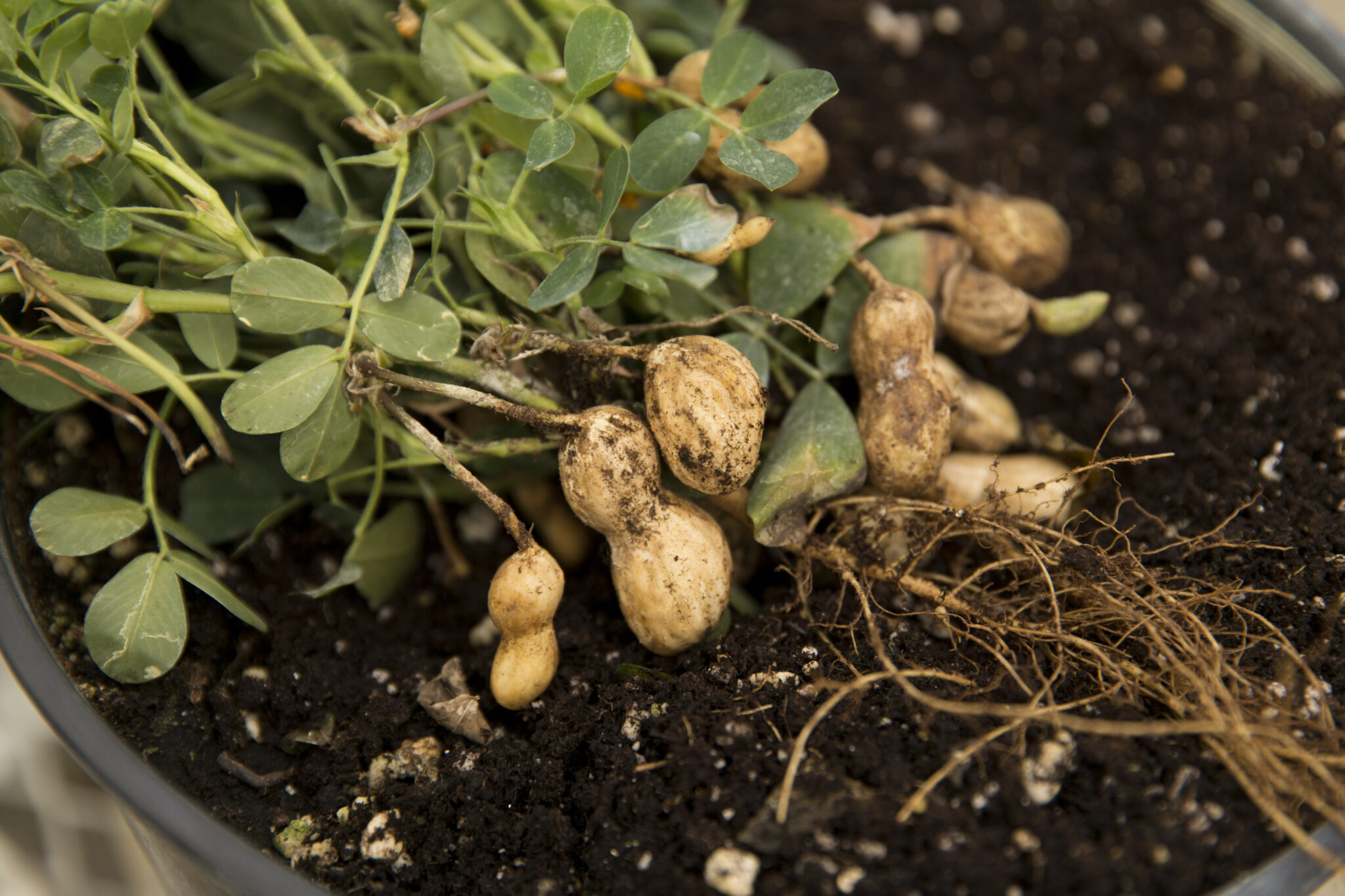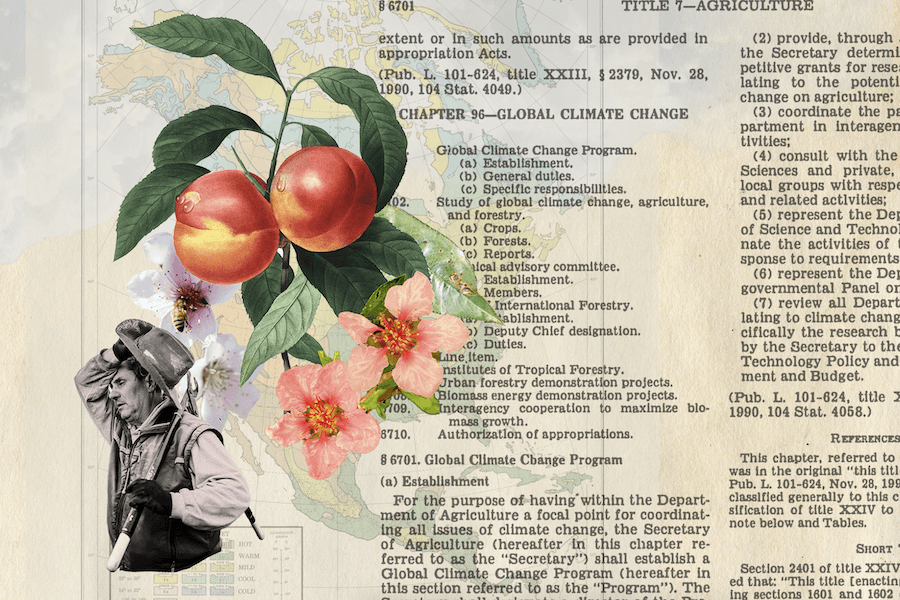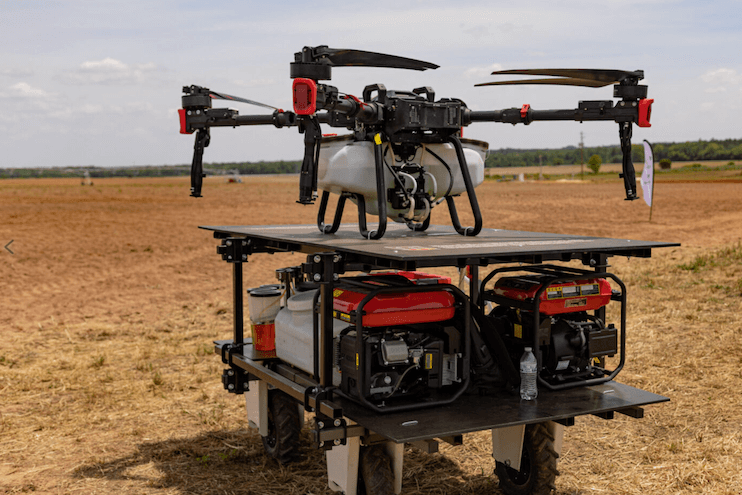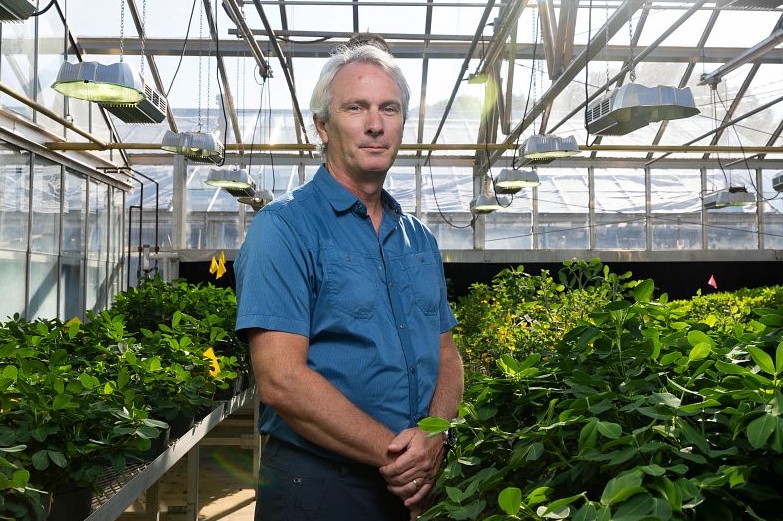A dual degree master’s program that evolved from a partnership between the University of Georgia and the University of Padova (UNIPD) in Padua, Italy, has also led to collaborative research between the two institutions.
Katrien Devos, a professor with joint appointments in the College of Agricultural and Environmental Sciences and in the Franklin College of Arts and Sciences on the UGA campus in Athens, Georgia, coordinates research on the genetics of economically important grasses, including switchgrass as a bioenergy crop, seashore paspalum as a salt-tolerant turfgrass, and millets as subsistence food crops for the developing world.
Her lab also served as the proving ground for research by Fabio Palumbo, a graduate student from UNIPD, working under the supervision of professor Gianni Barcaccia. During his Ph.D program, Palumbo mapped the male sterility gene in leaf chicory to better understand the genetic bases of this reproductive barrier that acts in flowering plants and to exploit it for breeding new F1 hybrid varieties, specifically in leaf chicory. A leafy vegetable that is widely cultivated in Europe, well-known types of leaf chicory are Belgian endive, sugarloaf and Italian radicchio.
Barcaccia's lab developed plant materials and performed experiments for genomic data production, while Devos’ lab assisted with genetic mapping analysis and data interpretation, and provided significant input during the manuscript preparation for Palumbo’s research. The two institutions published a joint paper this spring that detailed the first high-density linkage map construction through genotyping by sequencing in leaf chicory. This research project was funded by an Italian seed company that collaborates with UNIPD and that now uses this information for marker-assisted selection programs.
Genotyping by sequencing, also called “reduced representation sequencing,” is a technique where a fraction of the genome is sequenced. The key is to sequence the same fraction of the genome in all samples so that the results can be directly compared. The sequence data can be used to develop markers that can be analyzed for their association with traits of interest.
Many of the techniques and analyses methods that the Devos Lab normally implements can be transferred to other non-model species, such as chicory.
“The six months spent with Professor Devos' group were really important. First, they helped me a lot to improve my bioinformatic skills, with a special thanks to Dr. Peng Qi for his patience,” Palumbo said. “Secondly, Professor Devos involved me in two projects; one in switchgrass and one in aspen. This mutual cooperation was really fruitful.”
Because of his collaboration with Devos and her research group, Palumbo was able to characterize the putative gene and understand some of the genetic bases of this reproductive barrier that acts in chicory and other flowering plants, as well as develop molecular assays of importance for breeding F1 hybrid varieties.
“It was terrific working together. We had tons of molecular data, they had strong bioinformatic skills, and by putting everything together, it was possible to achieve excellent results. That's a brilliant example of how university collaborations should work,” he said.
Devos said she was impressed with Palumbo’s “scientific drive, level of independence and work ethic.”
“This particular project provided training on a technique, and knowledge on this technique has now been transferred to Padua,” Devos added.
For more information about the research project, visit https://bit.ly/2KhrS29.
Palumbo worked with UGA through an existing partnership between the UGA Department of Crop and Soil Sciences and the UNIPD Department of Agronomy, Food, Natural Resources, Animals and Environment in Italy. The two-year program that allows students to earn dual master’s degrees simultaneously at UGA and at UNIPD.
Aaron Bruce of Lakeland, Georgia, and Samuele Lamon of Moniego Di Noale, Italy, graduated from the program this spring. They are the third and fourth students to graduate from the program.
For more information about the dual degree program, see https://t.uga.edu/4Zs.

